
Google shares its sources, and a new AI-powered social app
Some big changes to Google coming that publishers need to be aware of. An interesting new app that could facilitate community conversations — with the help of AI. And why games aren't just about fun any more.
Google gets some Perspective
There have been some significant changes at Google in recent weeks. Some of them are largely visual. There’s been a big design refresh of Google Trends, for example, to bring it in line with the more modern design language used by, say, Google News.
But just this week, Google has announced the roll-out of three in-development features of search that are all about the provenance of information, and clearly separating opinion from reporting:
About this result
Google is bringing its “about this result” information to more countries, including European ones:
In the coming days, you’ll be able to click on the three dots next to a result to learn more about it and dig deeper into more information about a particular page. About this result will soon be available in all languages and countries where Search is available.
It will also give you some sense of whom the author is, if Google can clearly discern the author name. For example:
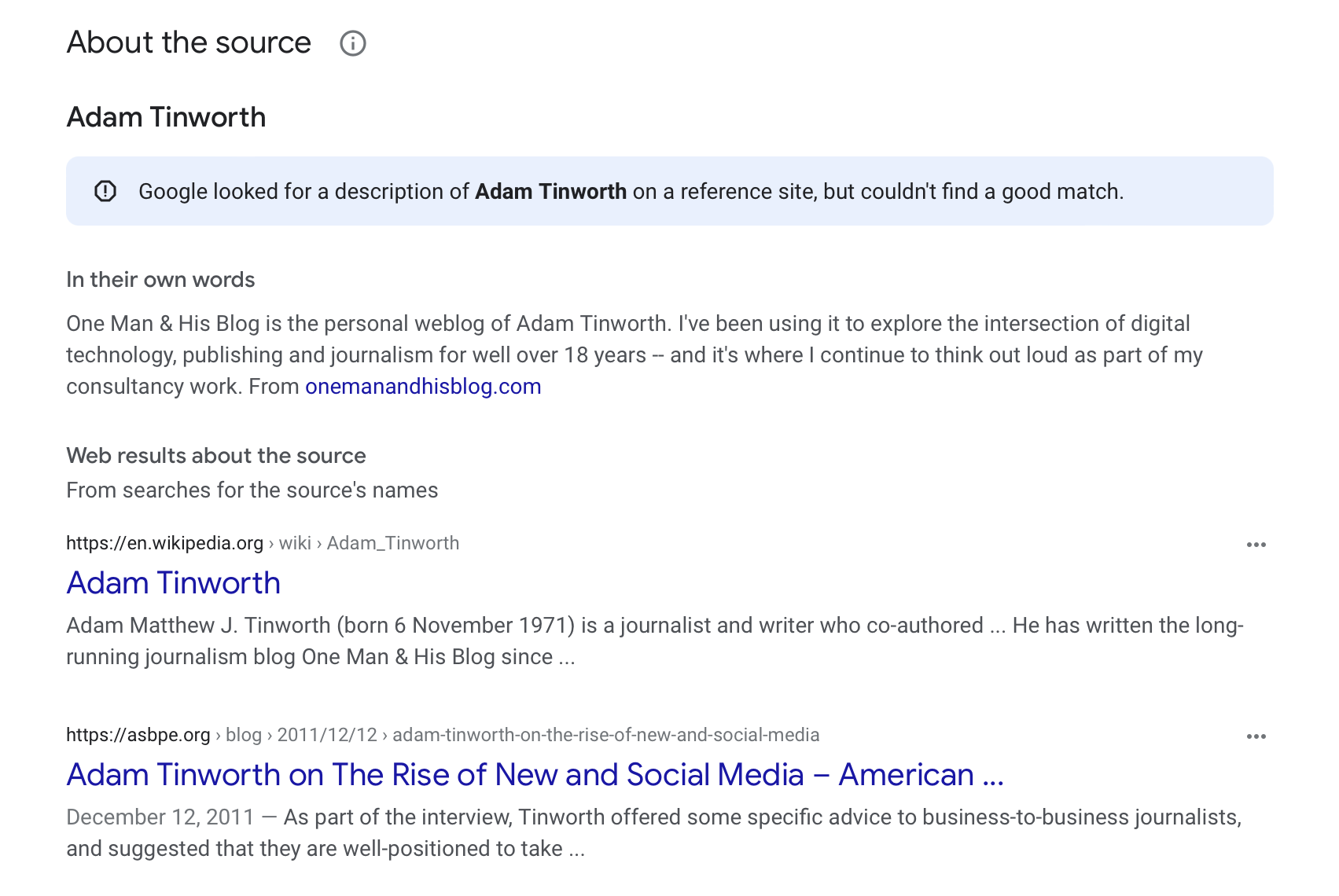
This seems like a way of allowing people to understand the provenance of stories when it’s not immediately apparent what the publication is. However, the user experience elements are less than discoverable — you have to really wonder what those three little dots of for — some I suspect it will have less impact on misinformation than hoped.
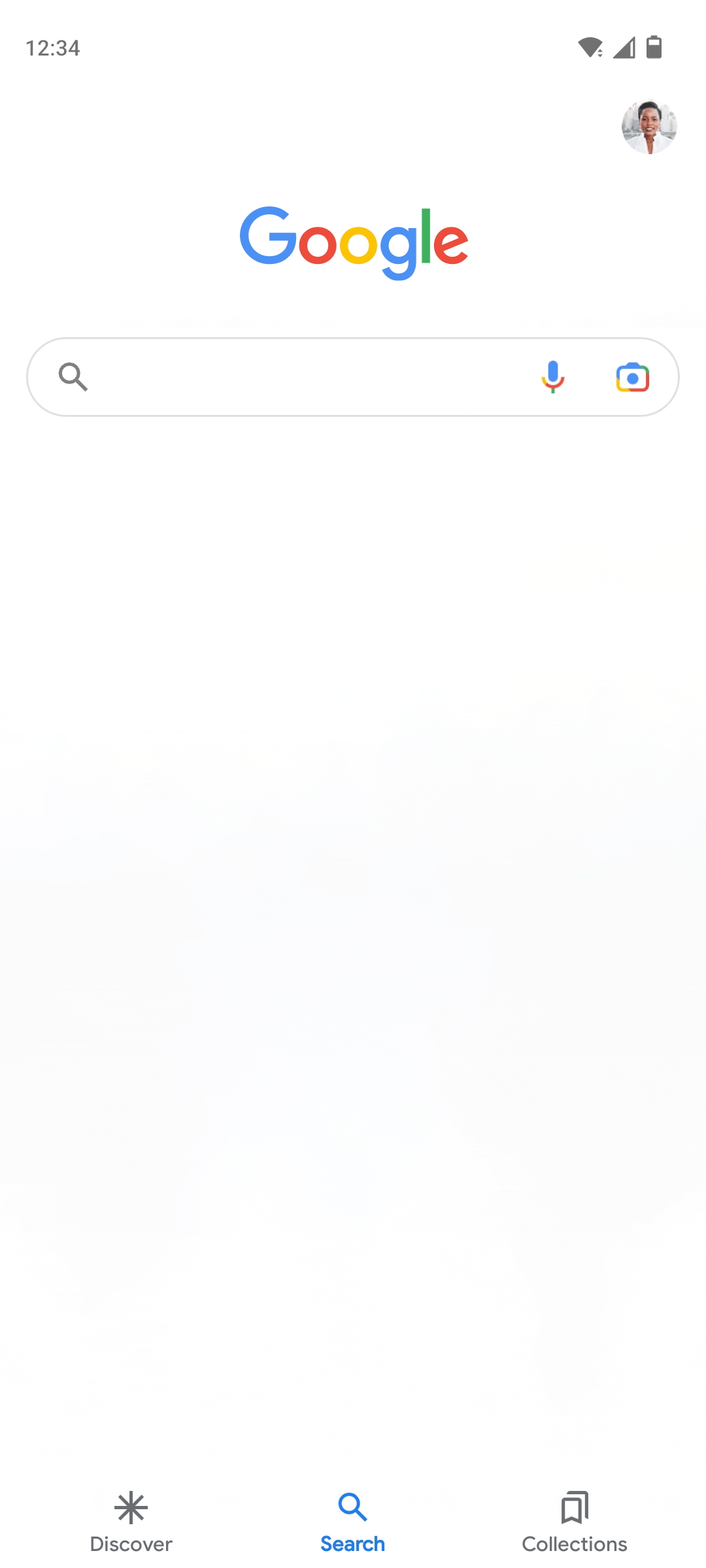
Advisories
This will be more useful, I expect:
Sometimes, there’s just not a lot of great information to show for a search, or the results are changing quickly – and it’s important to have that context. To address these information gaps, Search will automatically show content advisories in situations when a topic is rapidly evolving, or when our systems don’t have high confidence in the overall quality of the results available for the search.
Here’s some more information about Google advisories. They’ve been about since late last year, but are expanding to other countries.
Perspectives
A new carousel! Below the “Top Stories” news carousel, some US english searches are now showing a Perspectives carousel, showing off opinions and takes:
This carousel will appear below Top Stories and showcase insights from a range of journalists, experts, and other relevant voices on the topic you’re searching for. This feature will give you a variety of noteworthy voices on a news topic, complementing the trustworthy reporting you already find on Search to help broaden your understanding.
And now, Google is doing a better job of operating opinion and reporting than most publishers are. Yeah, we should do something about that, shouldn’t we?
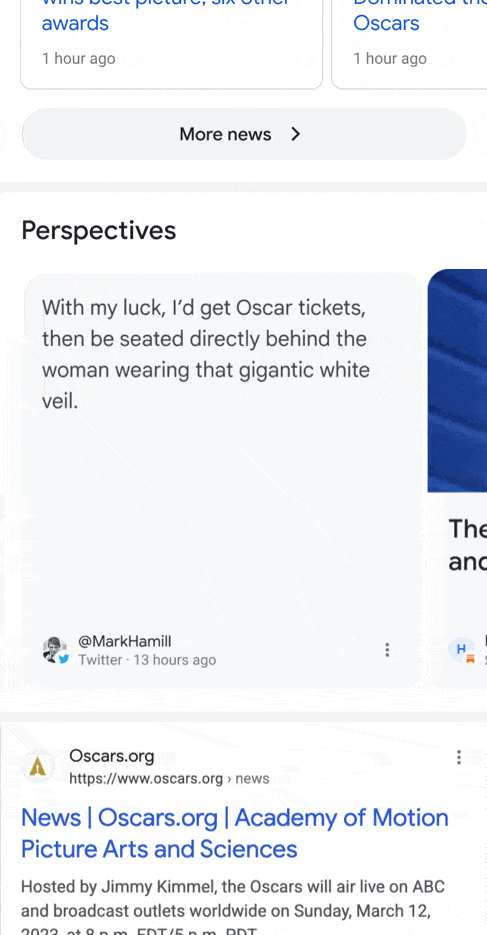
Sadly, Google haven’t yet given clear details on how they’re sourcing those Perspectives, so we don’t really know how to optimise for it — yet. But it’s certainly one to watch as it starts rolling out globally. Currently, it’s only for US English searches.
More Reading
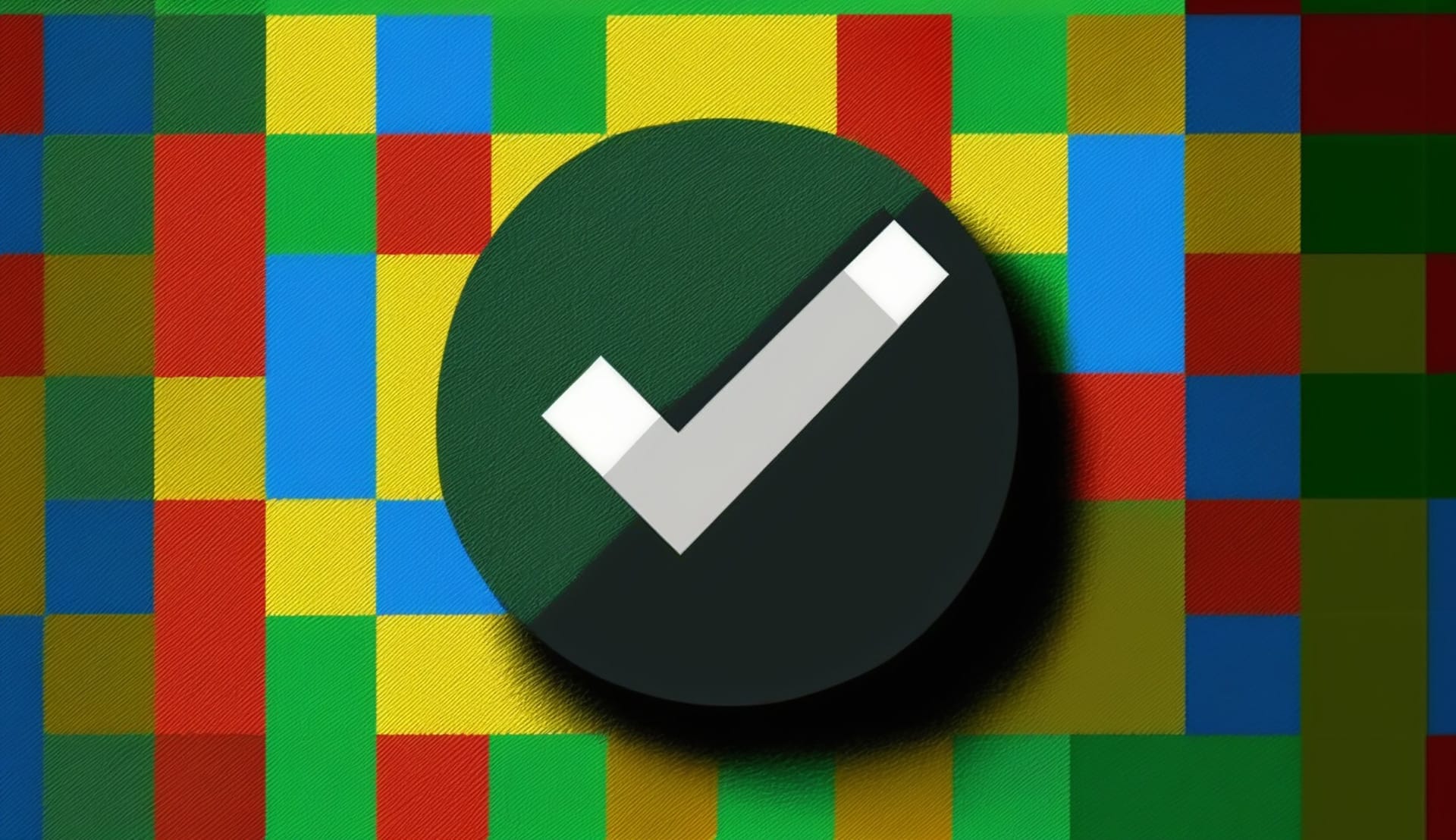

Yes, I know there’s more news about Twitter. Yes, I know it matters. However, I’m taking this newsletter off Musk's mystifying movements, and will come back to it tomorrow.
Quickies
- 📈 Notes from the Government Digital Service’s transition to Google Analytics 4.
- 💰 Substack is doing a crowdfunded investment round. This is absolutely because they want to involve their writers more in the business, and not at all because VC funding has dried up. 😇 (I will not be investing – giving myself a financial stake in the company would impact my ability to write about them honestly.)
- 🎥 A handy guide to video SEO from Vimeo.
- 👩🏻🎨 And here are some tips on visual storytelling from Paul Bradshaw.
- 🎙️ And let’s finish with six tips to improve the audio quality of your podcasts.
Are you on our Wavelength?
A new social app worth exploring: Wavelength. Its core idea is around facilitating group discussions among like-minded people. You know, people on the same wavelength. And those group discussions are supported by an informative AI.
AI really gets everywhere, doesn’t it?
Here’s how John Gruber, who has been testing the app, explains it:
Wavelength is different because it’s group-first. This manifests conceptually by adding a third, middle level to the design: threads. At the root level of Wavelength are groups. Groups have an owner, and members. At the second level are threads. Inside threads, of course, are the actual messages.
The challenge is that it is not social media. There’s no public timeline. You need to create groups with others, unless you’re content with just chatting with the app’s assistant AI. And that means you need to create a group and invite friends. It could be a useful tool for building audience engagement with a small group of subscribers or readers.
Fancy trying it out? Download the app, and then join the OM&HB reader group.

Why games should be part of your audience strategy
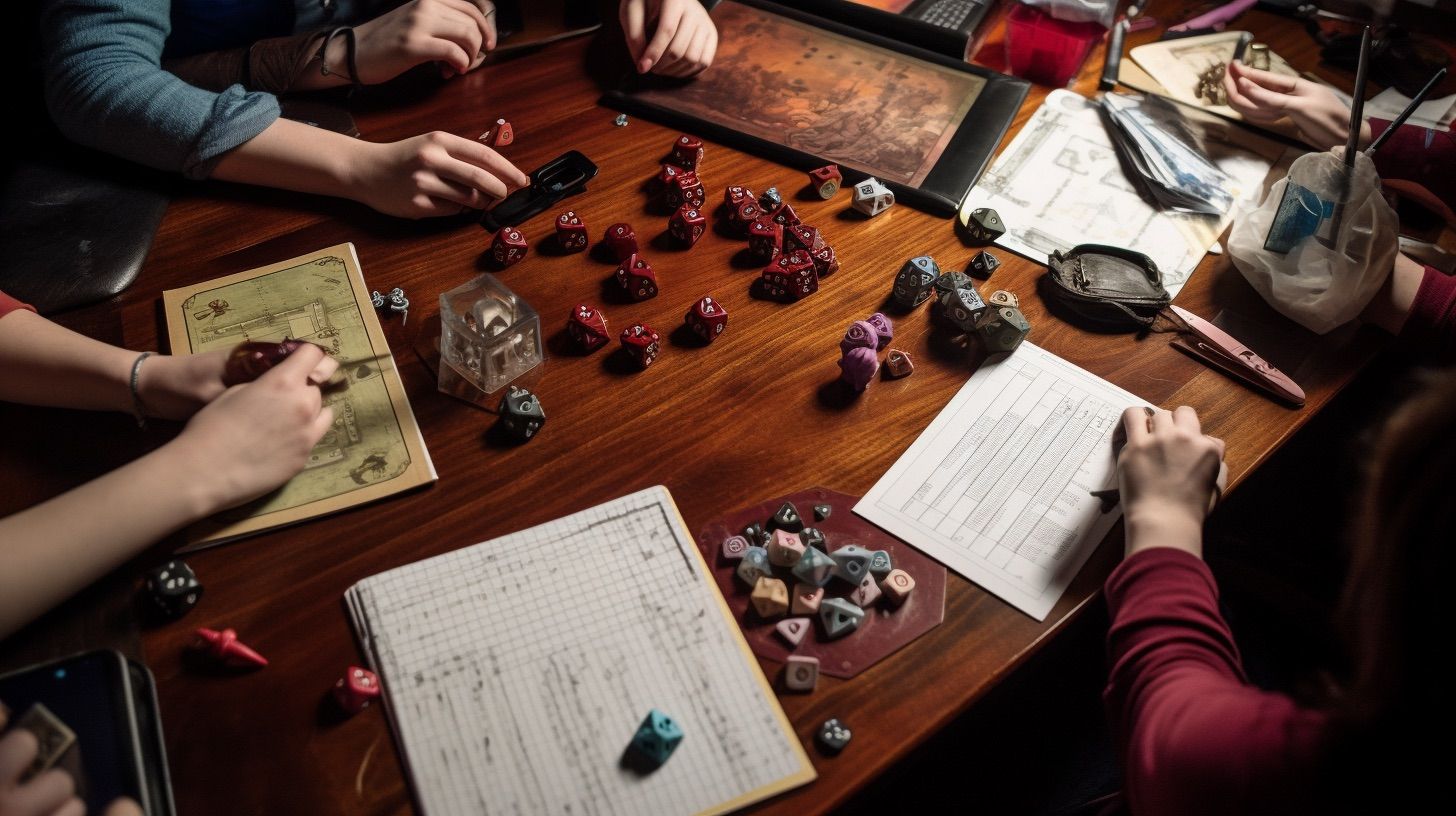
Somebody from a newspaper speaking at GDC, the leading games developer conference? Oh, yes. Zoe Bell of the New York Times did exactly that, talking Wordle — and audience strategy:
In audience research, the Times found that younger players who tend to spend money on games would visit the Times just to play Wordle and that these players were entirely new to The New York Times. “That traffic coming to our site really helped our subscriptions last year,” Bell said.
As I wrote many, 14 long years ago, we never sold news, we sold subscription bundles. The fundamental trick of a good acquisition strategy is not to build it solely on news. You need to find the right bundle of content to draw readers in. And that might well include games, cartoons and more.
It’s an old lesson, but one we need to relearn.
/cdn.vox-cdn.com/uploads/chorus_asset/file/24543816/1240134539.jpg)
And Finally…
Boomer journalists insisting that new trainees have shorthand while still not knowing how to schedule a tweet, hyperlink, cut and embed a video, edit a picture, optimise a URL and headline, identify trending searches and build a portfolio website seriously need to take a second
— Harriet Marsden (@harriet1marsden) March 29, 2023
Sign up for e-mail updates
Join the newsletter to receive the latest posts in your inbox.













